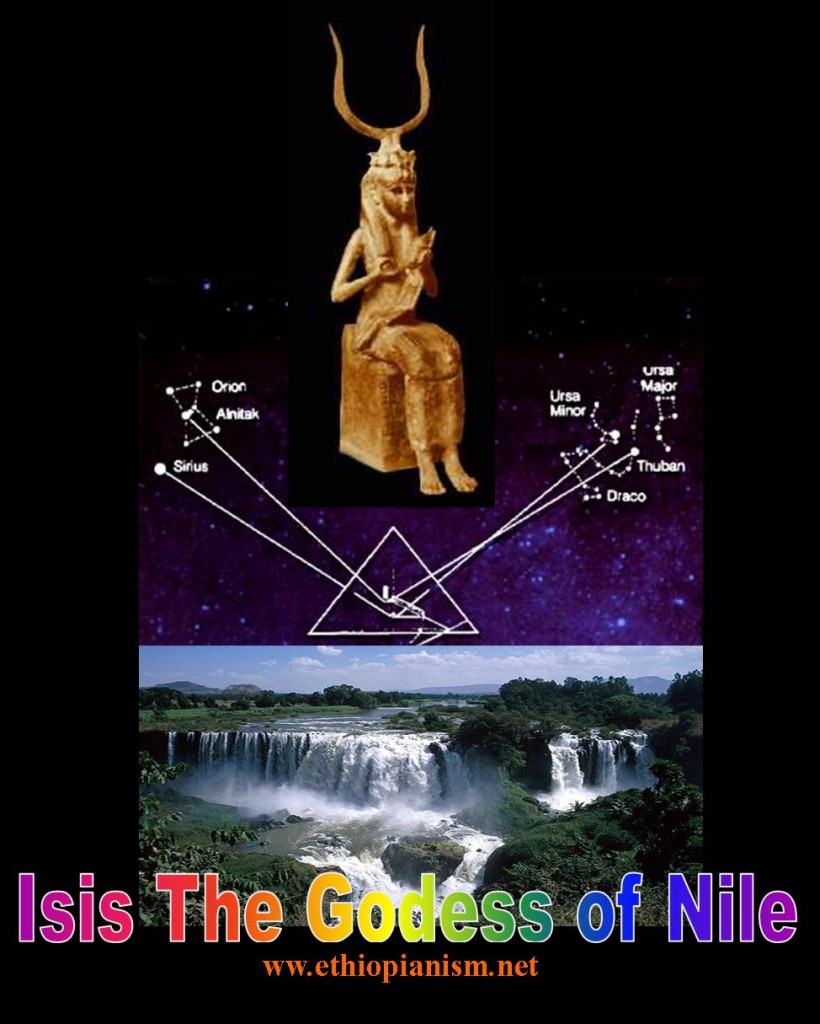Warning: Attempt to read property "ID" on null in /home/geghna/ethiopianism.net/wp-includes/media.php on line 3125
Notice: Function map_meta_cap was called incorrectly. When checking for the
read_post capability, you must always check it against a specific post. Please see Debugging in WordPress for more information. (This message was added in version 6.1.0.) in /home/geghna/ethiopianism.net/wp-includes/functions.php on line 6121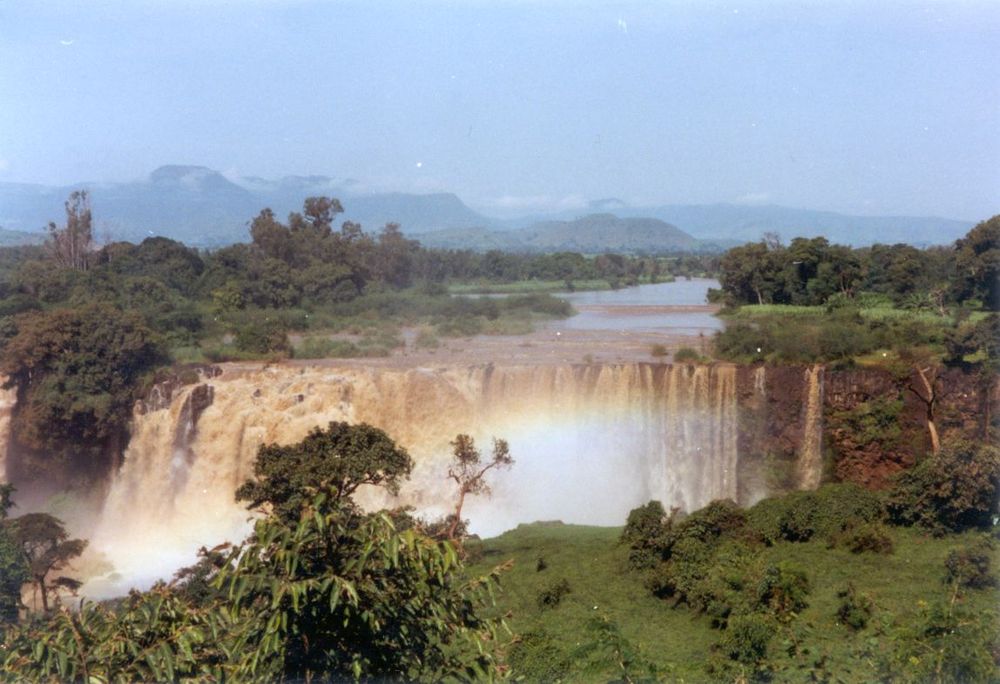
“If Ethiopia takes any action to block our right to the Nile waters, there will be no alternative for us but to use force. Tampering with the rights of a nation to water is tampering with its life, and a decision to go to war on this score is indisputable in the international community.” President Anwar el-Sadat
“We are not begging Egypt and Sudan to give us our fair share of the Nile,” Ethiopia’s water minister, Asfaw Dingamo, said on June 24. “No soldier on the Nile will prevent us from using the waters as long as we are not causing any significant harm to each other.”

The Nile form Greek word “Nelios”, meaning River Vally is the longest river in the world. The only river flowing from south to the north to words the orion constellation with the sphinx of Egypt with Giza Pyramid it marks the Milk-way known since the 12’000 BC in pre-Delugeian Egypt.
the north to words the orion constellation with the sphinx of Egypt with Giza Pyramid it marks the Milk-way known since the 12’000 BC in pre-Delugeian Egypt.
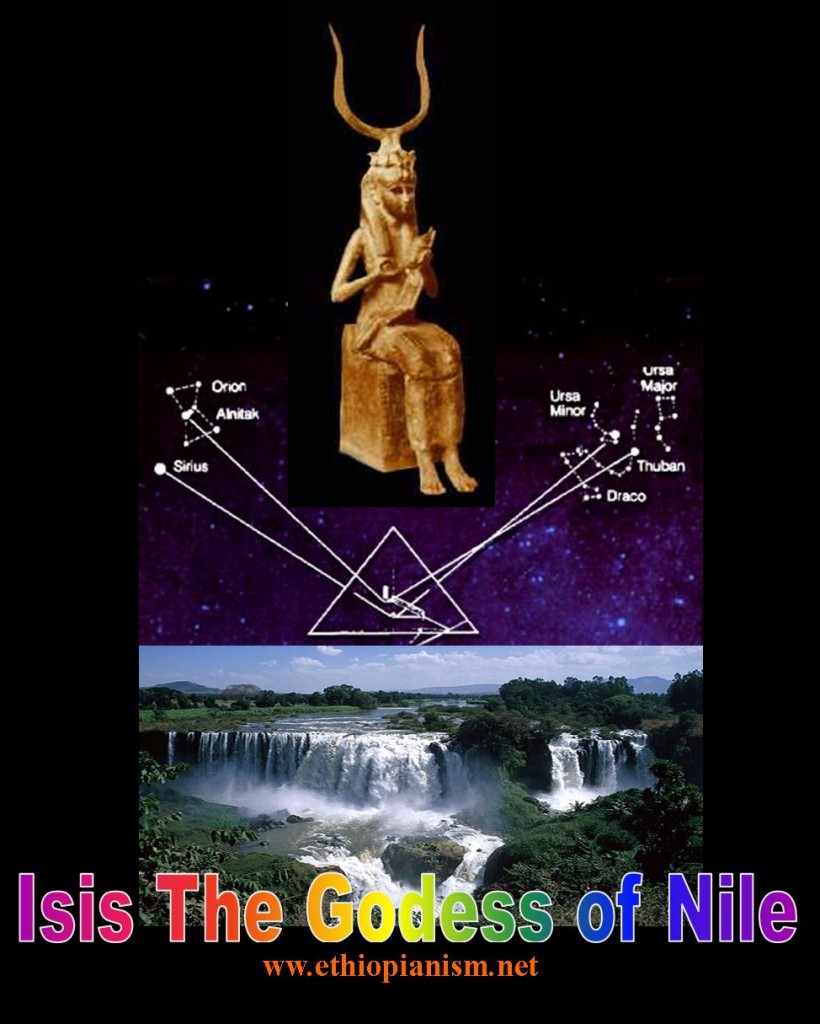
In the pharaonic Egypt over 5000 years ago the Nile was flowing under the foot of the Sphinx flooding at the rise of Sirius. It was a very important star to the ancient Egyptians, who called it the Star of Isis or the Nile Star .
On the rising of Sirius Egyptians knew it would soon be time for the flooding. This Flooding the Ethiopian dictator Menese Zenawie will be soon stopping. The seasonal flooding of the Nile is all the Egyptian life and the Zodiac as a center of the Earth is interwoven. The Twelve stars and the signs are also marked by the seasonal flow of the Nile river. Melese Zenawie the New Pharaoh of Ethiopia will be soon stopping draining Bahr al-Azraq the only source of the fertility and soil for livelihood for Egypt. 87 % of the Nile rises from Ethiopian high lands.
River Ruvyironza in Burundi is the ultimate source of the Nile, it changes it flows to Kagera River. Kagera follows northern Rwanda northward, connects the three countries the Great Lake Rwanda, Uganda and Tanzania slowly drains to Lake Victoria. When it comes from lake Victoria it changes its name to whit Nile and e flows generally north of Uganda and into Sudan and meets its tween Blue Nile known also Abay in Ethiopia or Bahr al-Azraq at Khartoum. Rising from the Abyssinian highlands travels 1529 km (950 mi) from Lake T’ana at the altitude of 2,150 m (7,054 ft) above sea level. From the confluence of the White and Blue Nile, the river continues to flow northwards into Egypt and on to the Mediterranean Sea. From its source Ruvyironza River it is 6671 km (4145 mi) long making the Nile river basin has an area of more than 3,349,000 sq km (1,293,049 sq mi).
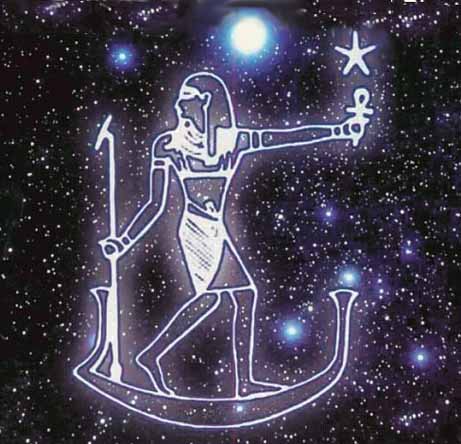
The Nile Cities like Cairo, Gondokoro, Khartoum, Aswan, Thebes/Luxor, Karnak, and the town of Alexandria lies near the Rozeta branch will soon short of sweet water to drink because the new megalomaniac Dictator Melese Zenawie once supported by Egypt during his struggle, will control the flow.
The major dams like Roseires Dam, Sennar Dam, Aswan High Dam, and Owen Falls Dam soon will be at the desposal the Water Dictator in Addis Ababa.
Egypt is one of the hottest and sunniest countries in the world. With the exception of a strip about 80 km/50 mi wide along the Mediterranean coast, Egypt has a desert climate, being entirely within the Sahara. While Ethiopia is located in the tropics and variations in altitude have produced a variety of microclimates.
The legendary fertility of Egypt is a consequence of the fact that about 3% of the country consists of the Nile valley and delta. The river Nile has no tributaries within Egypt but is nourished by the heavy rains that fall far to the south in Ethiopia and East Africa. The Nile valley and delta are intensively cultivated by irrigation and contain about 95% of Egypt’s population. The Mediterranean coastal strip has an average annual rainfall of 100-200mm/4-8 in, which is not sufficient to support crops. Over the rest of Egypt, roughly south of Cairo, the annual rainfall is a mere 25-50 mm/1-2 in. In the contrary Ethiopia revives 100 times rains fall morthan Egypt. The Ethiopian mean annual rainfall ranges from 2000-mm over some pocket areas in the southwest highlands, and less than 250-mm in the lowlands. In general, annual precipitation ranges from 800 to 2200-mm in the highlands (>1500 meters) and varies from less than 200 to 800-mm in the lowlands (<1500 meters). Rainfall also decreases northwards and eastwards from the high rainfall pocket area in the southwest.


The Ethiopian dictator Melese Zenawie is trying to lull Egypt to its destruction. He publicly claims that Egypt will receive pure water from Ethiopia witout any soil in his Egyptian TV interview. Thus, it is the end of Egypt as we know it. Egypt needs the soil embedded Nile water. Without such water the soil of Egypt’s farm lands will lose that yearly renovating fresh soil from the Ethiopian Highland plateau. The Nile will be transformed according to Melese Zenawe to White Nile. The new Ethiopian Blue Nile converted to White Nile will not make it to Egypt. It will vaporize in the Nubian Desert. The soil keeps the constancy of the two Niles to resist in crossing over 40°C burning Nubian desert to flow to Egypt.
The Ethiopian Dictator as recently remarked not only he will deprive the Nile from its soil content but also as he will control the yearly flood of the river( listen to his declaration in the video here under). The Nile River’s average discharge is about 300 million cubic meters per day will be soon be an old story when he start bottling and selling the sweet water in dollar. This undo flood control will destroy the Flora and fauna natural cycle near and around the great pharaonic river.
The megalomaniac Water Pharaoh of Ethiopia Melese Zenewa just to have a regional undue power is putting at risk the lives of millions of inhabitants in Ethiopia (Omotic people), Kenya ( lake Turkana ) Sudan and Egypt ( the Nile), by construction 0ver 500 dams in the principal water heads of the region.
Egypt pharaonic needs the yearly floods of the Nile. This in turn keeps the Egypt farm land refreshed and the cycle of the minimum of riverian annually need will be maintained. Ethiopia with annual rain fall of 2000mm does not need to build dams which will deprive Egypt who has only 200 mm of yearly rains. Ethiopia rather could use alternative energy sources, like thermodynamic, Solar, Wind, sleeping turbines (the Chinese are expert in this matter rather than building huge useless dams for their new friend Melese Zenawi). Egypt could even participate in the development of Geothermal energy rather than grabbing land in Ethiopia.
The Nile water constant flow without yearly flooding will completely change Egypt way of life around the Nile.
Ethiopia having over 12 rivers and 12 lakes does not need to stabilize the Nile and purify the water reaching Egypt if any left any way.
The Ethiopian Dictator is preparing for the coming war with Egypt. He has already send pamphlets to be distributed and mobilize the Ethiopians in Diaspora:- Read
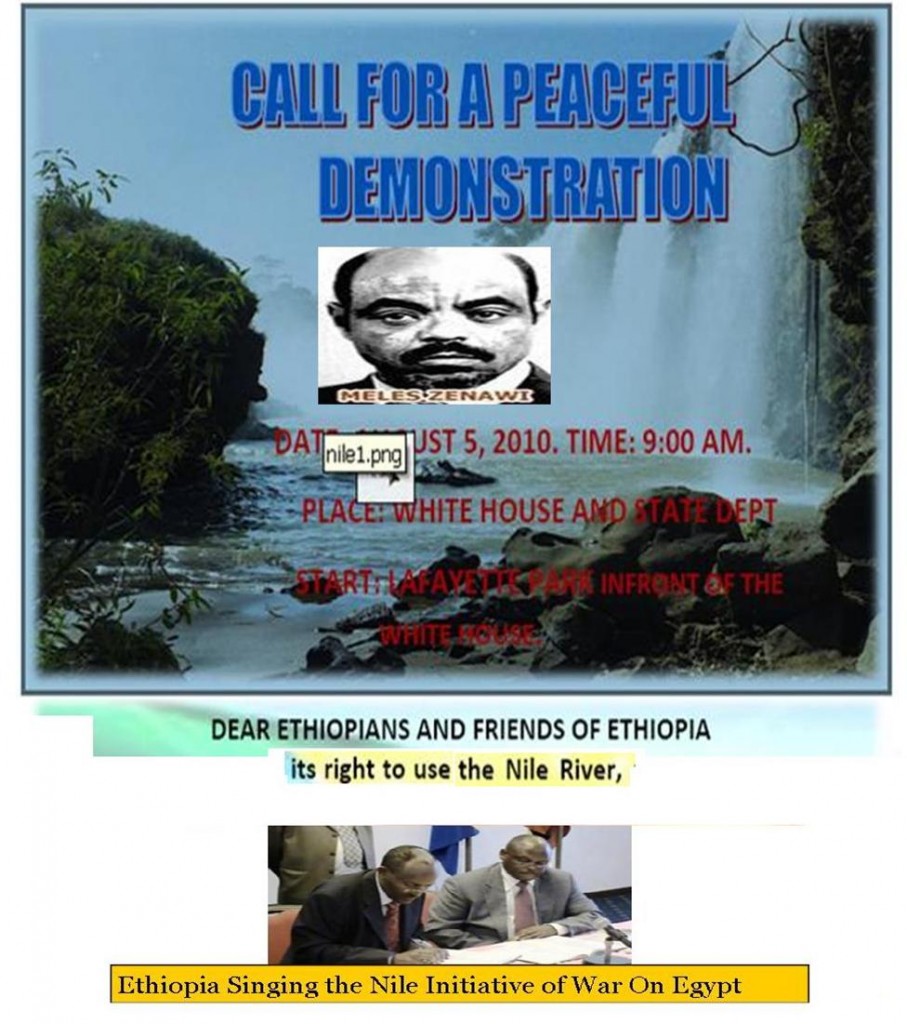
Egypt softens
Egypt softens position in Nile dispute
Egypt sounded a conciliatory note on Monday in a dispute over how Nile waters should be shared by the countries it passes through at an African summit in the Ugandan capital Kampala.
After more than a decade of talks driven by anger over the perceived injustice of a previous Nile water treaty signed in 1929, Ethiopia, Uganda, Tanzania, Rwanda and Kenya signed a new deal in May without their northern neighbours.
The five signatories have given the other Nile Basin countries — Egypt, Sudan, Burundi and Democratic Republic of the Congo — one year to join the pact but the countries have been torn by behind-the-scenes debate since the signing.
“There are no strategic differences between us,” Egyptian Prime Minister Ahmed Nazif told reporters at the summit. “The issue is only on some technical points that need resolution. The purpose of the Nile Basin agreements is development.”
The words mark a softening of the Egyptian position since a meeting of water ministers from the nine countries last month in the Ethiopian capital, Addis Ababa.
“Ask the Egyptians to leave their culture and go and live in the desert because you need to take this water and to add it to other countries? No,” Egyptian Water Minister Mohamed Nasreddin Allam told Reuters at that meeting.
The Nile, stretching more than 6,600 km (4,100 miles) from Lake Victoria to the Mediterranean, is a vital water and energy source for the countries through which it flows.
Egyptian state news agency MENA reported that Ugandan President Yoweri Museveni and Nazif agreed at the AU summit that a meeting of the nine states, to take place in Nairobi by November, should be attended by heads of state.
Burundi and Democratic Republic of the Congo have not signed the deal yet and have so far been tight-lipped about whether they plan to or not.
Under the original pact Egypt, which faces possible water shortages by 2017, is entitled to 55.5 billion cubic metres a year, the lion’s share of the Nile’s total flow of around 84 billion cubic metres.
Some 85 percent of the Nile’s waters originate in Ethiopia.
Reuters
Can Uganda and Ethiopia act as Egypt’s “water bankers”?
Nile Basin countries may fight for water
New Nile agreement a wake-up call for Egypt
Nile Basin Relations: Egypt, Sudan and Ethiopia
May 7, 1929 – The Agreement between Egypt and Anglo-Egyptian Sudan
-
- Egypt and Sudan utilize 48 and 4 billion cubic meters of the Nile flow per year, respectively;
- The flow of the Nile during January 20 to July 15 (dry season) would be reserved for Egypt;
- Egypt reserves the right to monitor the Nile flow in the upstream countries;
- Egypt assumed the right to undertake Nile river related projects without the consent of upper riparian states.
- Egypt assumed the right to veto any construction projects that would affect her interests adversely.
.
This agreement included:
In effect, this agreement gave Egypt complete control over the Nile during the dry season when water is most needed for agricultural irrigation. It also severely limits the amount of water allotted Sudan and provides no water to any of the other riparian states.
- This agreement included:
- The controversy on the quantity of average annual Nile flow was settled and agreed to be about 84 billion cubic meters measured at Aswan High Dam, in Egypt.
- The agreement allowed the entire average annual flow of the Nile to be shard among the Sudan and Egypt at 18.5 and 55.5 billion cubic meters, respectively.
- Annual water loss due to evaporation and other factors were agreed to be about 10 billion cubic meters. This quantity would be deducted from the Nile yield before share was assigned to Egypt and Sudan.
- Sudan, in agreement with Egypt, would construct projects that would enhance the Nile flow by preventing evaporation losses in the Sudd swamps of the White Nile located in the southern Sudan. The cost and benefit of same to be divided equally between them. If claim would come from the remaining riparian countries over the Nile water resource, both the Sudan and Egypt shall, together, handle the claims.
- If the claim prevails and the Nile water has to be shared with another riparian state, that allocated amount would be deducted from the Sudan’s and Egypt’s and allocations/shares in equal parts of Nile volume measured at Aswan.
- The agreement granted Egypt the right to constructs the Aswan High Dam that can store the entire annual Nile River flow of a year.
- It granted the Sudan to construct the Rosaries Dam on the Blue Nile and, to develop other irrigation and hydroelectric power generation until it fully utilizes its Nile share.
- A Permanent Joint Technical Commission to be established to secure the technical cooperation between them.
